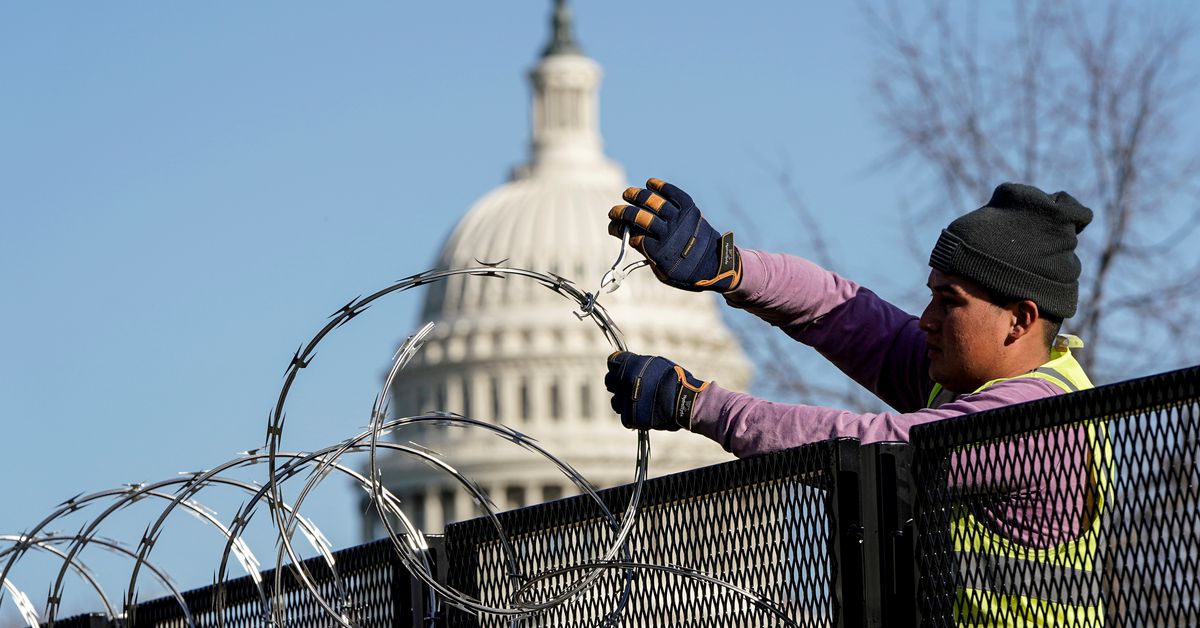U.S. House Jan. 6 committee demands Trump White House records

WASHINGTON, Aug 25 (Reuters) – A congressional committee investigating the deadly Jan. 6 attack on the U.S. Capitol issued its first demands for documents from government agencies on Wednesday, including communications involving some of former President Donald Trump’s closest advisers and family.
The House of Representatives Select Committee asked for White House communications records on and leading up to Jan. 6, The panel also made extensive requests for material from the Departments of Defense, Homeland Security, Interior and Justice, and the FBI, National Counterterrorism Center and Office of the Director of National Intelligence.
The committee’s Democratic chairman, Representative Bennie Thompson, gave the agencies two weeks – until Sept. 9 – to produce the materials. It expects to make additional requests as the investigation moves forward.
“Our Constitution provides for a peaceful transfer of power, and this investigation seeks to evaluate threats to that process, identify lessons learned and recommend laws, policies, procedures, rules, or regulations necessary to protect our republic in the future,” Thompson wrote in a letter to the National Archives and Records Administration, which holds records from the Trump administration, and the seven other government entities.
Trump, in a statement late on Wednesday, called the committee’s request “a partisan sham and waste of taxpayer dollars.”
Mobs of Trump supporters stormed the Capitol as Congress was meeting to certify Democrat Joe Biden’s presidential election victory, and delayed that process for several hours as then-Vice President Mike Pence, members of Congress, staff and journalists fled from rioters.
Nearly 600 people have been arrested in connection with the Capitol attack.
The panel said it wanted information on the attack itself and the run-up to the events of the day, including the gathering and dissemination of intelligence, security preparations and the role agencies played in defending the Capitol.
It asked for documents related to planning for and concerns about violence surrounding the rally on Jan. 6 where Trump made a falsehood-laden speech before his followers headed for the Capitol.
Pro-Trump protesters storm into the U.S. Capitol during clashes with police, during a rally to contest the certification of the 2020 U.S. presidential election results by the Congress, in Washington, January 6, 2021. REUTERS/Shannon Stapleton
The Select Committee also requested information about personnel changes between the Nov. 3, 2020, election and Jan. 20, 2021, when Biden took office, and asked for documents and communications about possible attempts by Trump to remain in office despite losing the election.
TRUMP AIDES AND FAMILY
Among the requests were documents and communications about Trump’s allegations of election fraud, involving Trump’s former chief of staff, Mark Meadows, and the members of his legal team including Rudy Giuliani, Sidney Powell and Kurt Olsen.
The letters also ask for documents and communications related to members of his family, some of whom had official roles at the White House. Those included first lady Melania Trump, his sons Donald Jr. and Eric, daughter Ivanka, daughter-in-law Lara and Ivanka Trump’s husband, Jared Kushner.
House Democrats formed the committee, despite objections from Trump’s fellow Republicans in the House, to investigate the assault on the Capitol. It was the worst violence at the seat of the U.S. government since the British invasion during the War of 1812.
Representative Liz Cheney, one of the two Republican select committee members, was stripped of her leadership role in her caucus after denouncing Trump’s allegations that Biden’s election victory was not legitimate.
Four people died on the day of the violence, one shot to death by police and the other three of natural causes. A Capitol Police officer who had been attacked by protesters died the following day. Four police officers who took part in the defense of the Capitol later took their own lives. More than 100 police officers were injured.
The document requests came a month after the committee held its first hearing, at which four police officers who had helped repel the attack described being beaten, taunted with racial insults and fearing they might die as they struggled to protect the building.
The committee has not yet scheduled additional hearings.
Reporting by Patricia Zengerle; Editing by Jonathan Oatis, Matthew Lewis and Peter Cooney
Our Standards: The Thomson Reuters Trust Principles.






